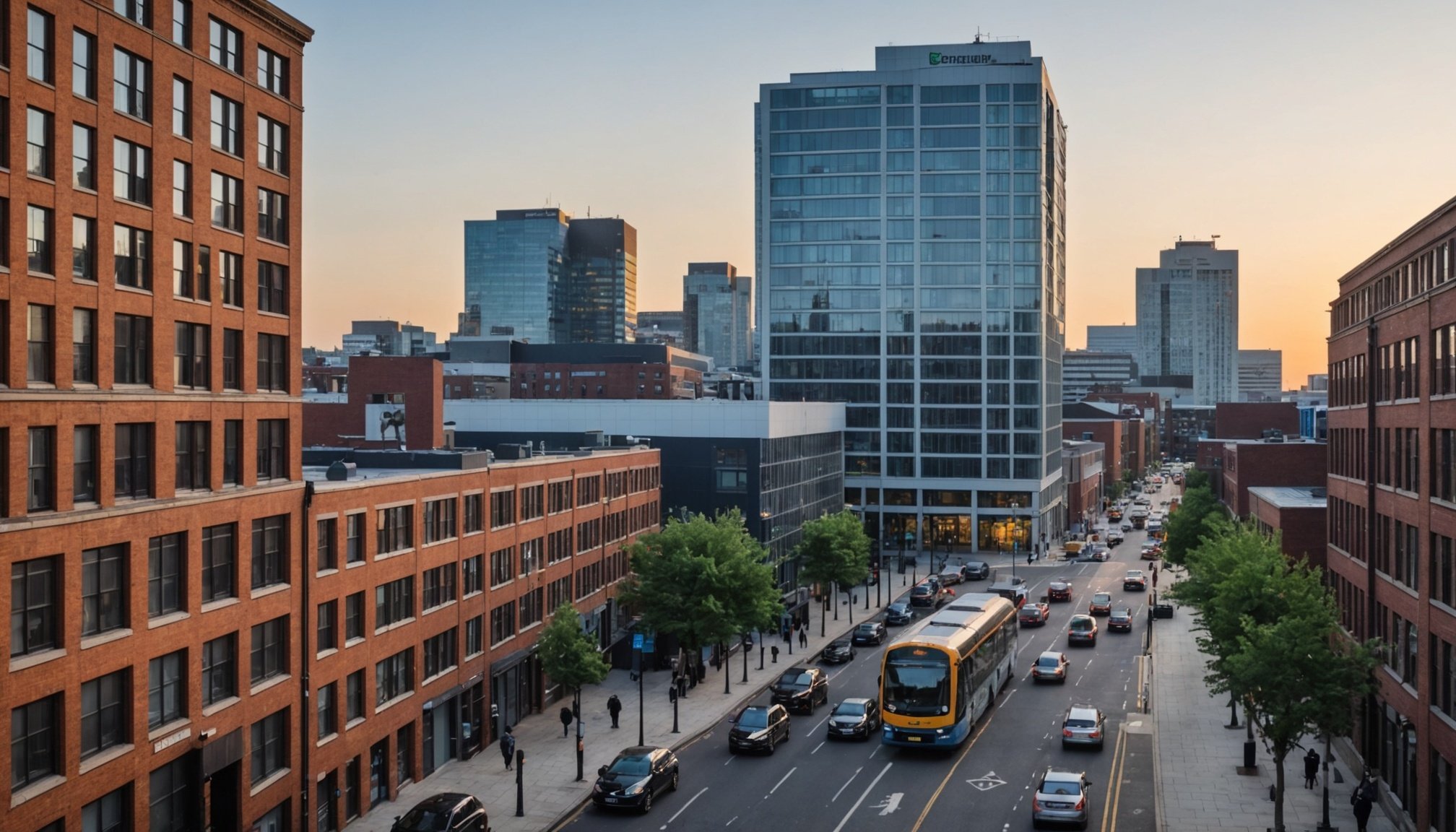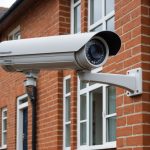Minimizing Noise Pollution in Your Birmingham City Center Apartment: Top Techniques
Living in the heart of Birmingham can be exciting, but it also comes with its share of challenges, one of which is noise pollution. Whether it’s the constant hum of traffic, the chatter of pedestrians, or the clatter of construction, noise can significantly impact your quality of life. Here are some top techniques to help you reduce noise pollution in your Birmingham city center apartment.
Understanding Noise Pollution
Before we dive into the solutions, it’s essential to understand what noise pollution is and how it affects us. Noise pollution is the excessive and unwanted sound that can disrupt the normal activities of an individual or community. In urban areas like Birmingham, common sources of noise pollution include traffic, construction, and industrial activities.
Also to see : Understanding the Financial Implications of Purchasing Short-Lease Properties in London: Risks to Consider
“Excessive noise can lead to a range of health issues, including hearing loss, cardiovascular disease, and mental health problems,” notes Dr. Francesco Aletta, a researcher in urban sounds and sound perception[2].
Assessing Your Environment
To effectively minimize noise pollution, you first need to assess your environment. Here are a few steps to take:
Additional reading : New Builds vs. Older Homes in Newcastle: Weighing the Benefits and Drawbacks
Conduct a Noise Survey
A noise survey is a systematic way to measure and analyze the noise levels in your area. This can help you identify the primary sources of noise and their impact on your living space.
- Use Noise Monitoring Equipment: Invest in or rent noise monitoring equipment to measure the decibel levels at different times of the day.
- Keep a Noise Diary: Record the times when the noise is most bothersome and the activities that are disrupted.
- Consult with Neighbors: Talk to your neighbors to see if they are also affected by the noise.
Review Local Planning Policies
Understanding the local planning policies and development plans can give you insight into potential future noise sources.
- Birmingham City Council’s Local Plan: Check the local plan to see if there are any upcoming developments or infrastructure projects that could increase noise levels.
- Section Planning and CPO (Compulsory Purchase Order) Policies: Familiarize yourself with the section planning and CPO policies to understand how the city manages development and its impact on noise levels.
Acoustic Solutions for Your Apartment
Once you have a clear understanding of the noise sources and levels, you can implement various acoustic solutions to reduce the impact.
Soundproofing Your Apartment
Soundproofing is one of the most effective ways to reduce noise pollution.
- Use Acoustic Insulation: Install acoustic insulation materials like foam panels, soundproofing blankets, or mass-loaded vinyl in your walls, ceiling, and floors.
- Seal Gaps and Cracks: Ensure all gaps and cracks around windows, doors, and other openings are sealed to prevent noise from entering.
- Upgrade Windows: Consider replacing old windows with double-glazed or soundproof windows.
Utilize White Noise
White noise can help mask other noises, making them less bothersome.
- White Noise Machines: Use white noise machines or apps that generate constant, soothing sounds like rain or ocean waves.
- Fans and Air Conditioners: Running a fan or air conditioner can also create a constant background noise that helps mask other sounds.
Community and Policy-Level Solutions
While individual solutions are crucial, addressing noise pollution also requires community and policy-level actions.
Engage with Local Authorities
Engaging with local authorities and participating in community initiatives can help drive change.
- Attend City Council Meetings: Attend Birmingham City Council meetings to raise concerns about noise pollution and advocate for stricter noise regulations.
- Join Local Groups: Join local groups or forums focused on urban development and noise management to collaborate with others who share your concerns.
Support Noise-Reducing Initiatives
Support initiatives that aim to reduce noise pollution in the city.
- Traffic Management: Advocate for better traffic management strategies, such as traffic calming measures or alternative transport routes, to reduce traffic noise.
- Green Spaces: Support the development of green spaces, which can act as natural sound barriers and improve air quality.
Partnerships and Funding
Implementing effective noise reduction strategies often requires partnerships and funding.
Collaborate with Neighbors and Landlords
Collaboration with neighbors and landlords can be instrumental in implementing noise reduction measures.
- Shared Costs: Discuss with your landlord or neighbors the possibility of sharing the costs of soundproofing or other noise reduction measures.
- Community Grants: Look into community grants or national funding opportunities that support noise reduction initiatives.
Leverage Local and National Policies
Leverage local and national policies to secure funding and support for noise reduction projects.
- CPo (Community Protection Order) and CIL (Community Infrastructure Levy): Understand how CPO and CIL can be used to fund community projects aimed at reducing noise pollution.
- Framework Policy and Planning Management: Ensure that the framework policy and planning management in Birmingham include provisions for noise pollution management.
Practical Tips for Daily Life
Here are some practical tips to help you reduce noise pollution in your daily life:
Use Ear Protection
- Earplugs and Headphones: Use earplugs or noise-cancelling headphones when you need to focus or relax.
- Noise-Cancelling Apps: Utilize noise-cancelling apps on your smartphone to create a quieter environment.
Plan Your Day
- Avoid Peak Hours: Try to avoid going out during peak traffic hours to minimize exposure to traffic noise.
- Choose Quiet Routes: When walking or cycling, choose routes that are less noisy.
Improve Air Quality
- Air Purifiers: Use air purifiers to improve indoor air quality, which can also help reduce the overall impact of pollution.
- Greenery: Add plants to your apartment, as they can help purify the air and create a more peaceful environment.
Comparative Table: Noise Reduction Techniques
Here is a comparative table of some common noise reduction techniques:
| Technique | Effectiveness | Cost | Ease of Implementation |
|---|---|---|---|
| Soundproofing | High | High | Moderate |
| White Noise | Medium | Low | Easy |
| Window Upgrade | High | High | Moderate |
| Ear Protection | Medium | Low | Easy |
| Traffic Management | High | Very High | Difficult |
| Green Spaces | High | Very High | Difficult |
Minimizing noise pollution in your Birmingham city center apartment is a multifaceted challenge that requires a combination of individual actions, community engagement, and policy support. By understanding the sources of noise, implementing acoustic solutions, engaging with local authorities, and leveraging partnerships and funding, you can significantly reduce the impact of noise pollution on your life.
As Dr. Andrew Mitchell, a lecturer in Artificial Intelligence and Machine Learning for Sustainable Construction, notes, “The key to managing urban sounds is a holistic approach that considers both technological solutions and community involvement”[2].
By taking these steps, you can create a more peaceful and comfortable living environment in the heart of Birmingham. Remember, every small action counts, and collective efforts can lead to significant improvements in noise management and overall quality of life.
Understanding Noise Pollution in Urban Environments
In the bustling heart of urban living, noise pollution is an ever-present challenge residents face. Specifically, in areas like Birmingham City Center, the constant hum of city life can significantly impact the well-being and comfort of its inhabitants.
Noise pollution refers to the unwanted or harmful sounds that disrupt the natural balance of our auditory environment. In urban living, these sounds often stem from various common sources such as traffic congestion, construction activities, and the lively nightlife that characterises city centres like Birmingham. The constant exposure to these sounds can lead to numerous health problems, including stress, sleep disturbances, and even cardiovascular issues.
Addressing noise pollution is crucial for maintaining both mental health and general comfort for residents. Persistent noise can exacerbate anxiety and depression, highlighting the need for effective noise management strategies within urban living environments. Solutions include the implementation of noise barriers, promoting the use of quieter machinery, and encouraging city planning that considers acoustics.
In Birmingham City Center, tackling noise pollution isn’t just about reducing sound levels; it’s about creating a more liveable, peaceful environment that enhances the quality of life for everyone in the community.
Practical Soundproofing Techniques
Effective soundproofing involves a combination of soundproofing methods, quality insulation, and placing noise barriers in strategic locations. Not only do these techniques help maintain peace and quiet, but they also enhance the property’s acoustics.
Start with high-quality insulation, as its primary function is to absorb sound. Materials like fiberglass and mineral wool excel in reducing noise transmission. By layering insulation within walls, ceilings, and floors, you establish a buffer zone that dampens external noise.
For windows and doors, soundproofing requires specific installation strategies. Opt for double-glazed soundproof windows and install heavy, solid-core doors. Effective installation involves sealing gaps and edges with weatherstripping or rubber door sweeps to prevent sound leakage, significantly increasing barrier efficacy.
Acoustic panels add an aesthetic element while enhancing soundproofing within rooms. They absorb sound waves, reducing echoes and improving sound clarity. Install them in high-noise areas like home studios or entertainment rooms. Additionally, incorporate noise barriers like soundproof curtains or rugs for flexible noise management solutions.
Finally, it’s crucial to consider noise barriers, such as drywall or mass-loaded vinyl, which block sound significantly. This reflects sound waves back, preventing passage into quiet spaces and maintaining tranquillity.
Choosing Noise-Reducing Materials
When aiming to create a quieter environment, selecting the right noise-reducing materials is essential. Carpets and curtains play a pivotal role in blocking sound effectively, and each has its advantages over traditional materials.
Carpets offer superior noise reduction compared to hard floors. They absorb sound, preventing it from bouncing off surfaces, which is a common issue with harder flooring options like wood or tiles. If complete wall-to-wall carpeting isn’t feasible, consider using large area rugs to cover significant portions of hard floors, dramatically reducing sound transmission.
The type of curtains or drapes chosen can also impact sound levels. Opt for heavy, thick fabrics, such as velvet or wool, which effectively absorb noise. Blackout curtains are a popular solution, providing both noise reduction and enhanced privacy.
Incorporating strategic furniture arrangements can further aid in sound reduction. Placing bookshelves or upholstered furniture against walls can dampen sound transmission. Likewise, wall tapestries and padded headboards contribute to a quieter space, demonstrating the versatility of decor in managing noise. Embracing these strategies ensures a well-rounded approach to reducing noise through thoughtful material choices.
Layout Adjustments for Reduced Noise
Creating a quieter apartment environment involves strategic apartment layout decisions and effective sound design techniques. To absorb and block sound, arrange furniture thoughtfully. Best practices include positioning heavy furniture like bookshelves or sofas against shared walls to act as sound barriers. Adding upholstered items can further dampen noise.
Incorporate quiet zones by dedicating specific areas solely for relaxation. These zones can be enhanced with rugs, thick curtains, or wall hangings, which absorb sound and provide tranquility. Planning your space with these elements allows you to create a noise buffer, isolating a peaceful corner from the rest of the apartment.
Consider room partitioning to further manage sound movement within your apartment. Screens, curtains, or folding dividers are practical tools in space planning. They alter the flow of sound waves between different areas, providing an additional layer of soundproofing. Sliding doors or panels can also limit noise permeation effectively.
By integrating these space planning strategies, you can transform your apartment into a more serene place, balancing aesthetic and logistics to achieve reduced noise levels. Whether living in a bustling city or a quieter suburb, these approaches are both practical and beneficial.
Lifestyle Changes to Diminish Noise Impact
Shifting some daily habits and incorporating minor lifestyle adjustments can significantly decrease noise levels in shared living spaces. Start by embracing noise etiquette. Consider traditional practices like listening to music or watching television at a lower volume, especially during nighttime hours when sound travels more freely.
Making changes to how you use appliances can further minimize noise. For instance, run dishwashers, washing machines, and vacuums during times when they least disturb others, such as midday or early evening. Select appliances designed for quiet operation, as newer models often come with enhanced noise-reduction features.
In addition, engage with neighbors to foster a communal approach to maintaining a peaceful environment. Encouraging open communication about noise disturbances can lead to a more harmonious community. Suggest noise-curbing measures, like placing carpets or using door seals, which can help everyone coexist peacefully.
By consciously adjusting daily habits and practicing noise etiquette, individuals contribute to quieter urban life and promote a courteous environment. Small lifestyle tweaks lead to big changes, making shared spaces more congenial for everyone involved.
Understanding Local Regulations and Guidelines
Noise regulations are crucial in maintaining peace in residential areas. The Birmingham City Council enforces guidelines to manage noise pollution, ensuring a harmonious living environment. These regulations set acceptable noise levels during different times, especially during night hours. Understanding these rules helps residents know their rights and how disturbances can be managed.
Tenant Rights: Navigating Noise Disturbances
Tenants possess the right to a peaceful environment as part of their residential lease agreement. This means that tenants can demand reasonable levels of quietness at all times. If noise disturbances persist, tenants should first attempt to resolve the issue amicably with the source. However, if the problem continues, the tenant’s rights permit formal action.
Reporting & Addressing Noise Complaints
When informal resolutions fail, understanding how to effectively file a noise complaint with the Birmingham City Council is essential. Steps include:
- Documenting instances of disturbances.
- Contacting the Council for guidance and submitting a formal complaint.
- Following up to ensure the issues are addressed.
Ensuring adherence to noise regulations and respecting tenant rights fosters a respectful community, beneficial for everyone involved. Understanding these avenues empowers tenants to seek resolutions confidently and maintain the quality of life they deserve.
Product Recommendations for Noise Reduction
When it comes to noise reduction, Birmingham offers an array of top-rated soundproofing products that have received stellar reviews from users. Whether you’re dealing with noisy neighbours or street sounds, these products might just be your saviour.
For those considering a DIY solution, there are numerous noise reduction products available locally that can be quite effective. Acoustic panels, for instance, are easy to install and do a fantastic job at absorbing sound. You can easily find these materials at local hardware stores. Additionally, weatherstripping for doors and windows acts as a remarkable barrier against external noise.
If tackling a project yourself seems daunting, there are also local experts who provide comprehensive noise reduction services. Companies in Birmingham offer consultations where they review your specific noise challenges and propose bespoke solutions. These experts can install products that ensure optimal soundproofing for your home or office, providing peace and quiet tailored to your needs.
Exploring these options not only enhances your living environment but also reflects an investment in quality of life, demonstrating the effectiveness of dedicated noise reduction solutions.
Expert Insights on Noise Minimization
Engaging with soundproofing experts can be an enlightening journey for those seeking quieter living spaces. Local professionals in Birmingham have been instrumental in transforming noisy apartments into tranquil havens. Through interviews, these experts share practical advice, emphasizing tailored solutions based on the specific noise issues faced by residents.
One professional recalls a successful case in a bustling urban area, where a combination of soundproofing panels and strategic furniture placement dramatically reduced noise levels. This and other case studies underscore the importance of understanding sound dynamics in each apartment.
Experts highlight several tips and tricks to maintain a peaceful living space. Carpet underlay and heavy curtains can effectively absorb sound, while sealing gaps in walls and windows prevents external noise intrusion. Furthermore, incorporating bookshelves can act as additional sound barriers, adding both function and style.
Living in a vibrant city like Birmingham requires adaptable solutions to achieve tranquility. By tapping into the knowledge of soundproofing experts and applying their practical advice, residents can enjoy a serene environment even amidst urban chaos. Such insights empower individuals to take charge of their auditory comfort and enhance their quality of life.











